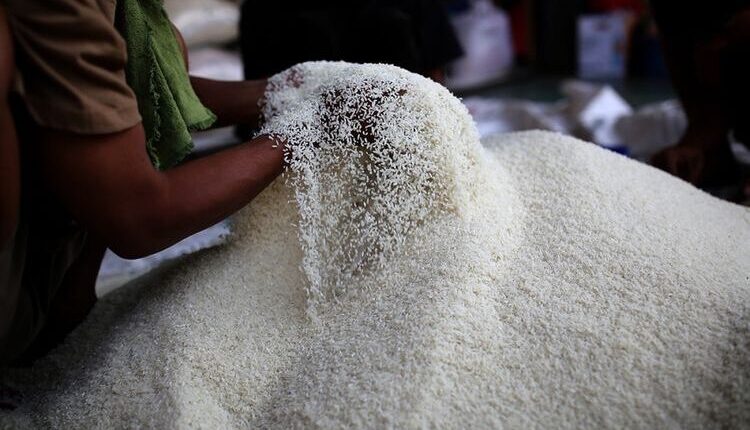Public Appreciates Government’s Efforts to Reduce Rice Inflation
By: Mika Putri Larasti )*
The government’s efforts to suppress rice inflation are very important in maintaining the stability of crucial food prices, especially since rice is one of the basic needs that is very dominantly needed by the Indonesian people. Rice consumption in Indonesia is increasing every year along with the increasing population in Indonesia.
The government is making various efforts to reduce the price of rice, which is currently experiencing an increase. One of the efforts is to distribute 10 kg of rice social assistance (bansos) to 21.3 million beneficiary families (KPM) for three months, from September, October and November.
Head of the National Food Agency (NFA) Arief Prasetyo Adi said President Joko Widodo (Jokowi) had also ordered the distribution of social assistance to continue to help low-income people.
The government considers that this rice assistance can become a legal umbrella for the distribution of government rice to certain community groups or so-called Beneficiary Families. This distribution is carried out through activities.
The distribution of rice aid is one of the government’s efforts to control inflation in order to reduce the price of rice which has risen quite significantly. So, regional officials need to play an important role in monitoring the development of Government Rice Reserves (CBP) so that they can be distributed properly to the community.
In anticipating and controlling the availability of rice, Perum Bulog Bojonegoro is implementing a Ready to Maintain Prices with Food Supply and Price Stability (SIGAP SPHP) program in each region. The SIGAP SPHP program is able to manage and control the availability of rice specifically to control rice in traditional markets and basic food stalls.
Chairman of the Indonesian People’s Consultative Assembly Bambang Soesatyo said that the SIGAP SPHP Program included concrete efforts to provide medium rice at an affordable price for the community. This implementation should be appreciated.
The public also appreciates the efforts made by the government to continue to pay attention to the availability of rice, which is a daily staple food. It is hoped that this step will be duplicated by other regional governments that are experiencing increases in rice prices.
To review the distribution for each region, Cimahi Mayor H. Dikdik said the rice assistance helped ease the burden on the community in meeting basic needs and was a form of government attention to the community.
The regional government together with Perum Bulog also continues to make efforts to anticipate increases in rice prices by holding market operations in a number of cities. For example, the Malang City Government held a market operation to stabilize rice prices, then the South Sumatra Provincial Government prepared a rice price intervention.
PT Pos Indonesia (Persero) Financial Services Business Director Haris said that of the targeted 3.5 million KPM data, approximately 3.4 million families had been distributed nationally. Even though the distribution of basic food assistance and the PKH program is being carried out well, Pos Indonesia is determined to maintain and even improve the quality of services to distribute similar assistance in the future.
On the other hand, the Community Assistance Recipient Group (KPM) in Cipadang Village also gathered at the Cipadang Village office, Cileles District, Lebak Banten Regency, gathered at the Cipadang Village Office, to receive 10 kg of Rice Social Assistance assistance from the Central Government.
During the implementation, the Secretary of Cipadang Village, Agus, said that the community would like to thank the government for providing this rice social assistance assistance, because this is very important to help supplement my daily needs.
The public really appreciates the steps taken by the central and regional governments who are quick to pay attention to people who are in need. Their enthusiasm can be seen when KPMs who receive assistance gather in an orderly queue to wait for the call so that the implementation can run smoothly and safely in accordance with the rules for receiving assistance.
Every region has participated in distributing aid from the government. In Indramayu, as many as 477 KPM in Silyeg Lor Village, Kab. Indramayu which has received free rice is 1 sack containing 10 kg. This free rice is one of the BCP programs distributed by the Regent of Indramayu, Nina Agustina. Head of Silyeg Log Village, Hj. Greece said that the people felt the benefits of the BCP Program from the Government. The community also considers that this program is proof of the Government’s concern for them in dealing with food insecurity, poverty, emergencies, and controlling food price inflation.
The Central and Regional Governments will continue to monitor food prices and availability and implement various intervention policies, including through market operations and cheap markets for staple foods, as well as strengthening food stocks and smooth distribution of supplies.
In a coordination meeting to control regional inflation, Minister of Home Affairs Muhammad Tito Karnavian has also asked regional governments to hold a Cheap Food Movement if commodity prices increase. For this reason, regional governments (Pemda) can utilize the Regional Revenue and Expenditure Budget (APBD) and unexpected expenditure or invite people who can afford it, including companies, to help.
Muhammad Tito Karnavian said that regional governments need to coordinate with the state prosecutors in each region if they are unsure about using the budget. Regional governments can also take advantage of deconcentration funds provided by the National Food Agency to all provinces.
The government continues to make improvements and develop innovations in stages to maintain its credibility as a distributor of aid, especially in front of the government so that rice prices can fall back to normal and reduce inflation.
In this way, people do not need to worry about rice food insecurity in Indonesia because both the Central Government and Regional Governments have taken the right steps in dealing with this crisis.
)* The author is a contributor to Ruang Baca Nusantara
